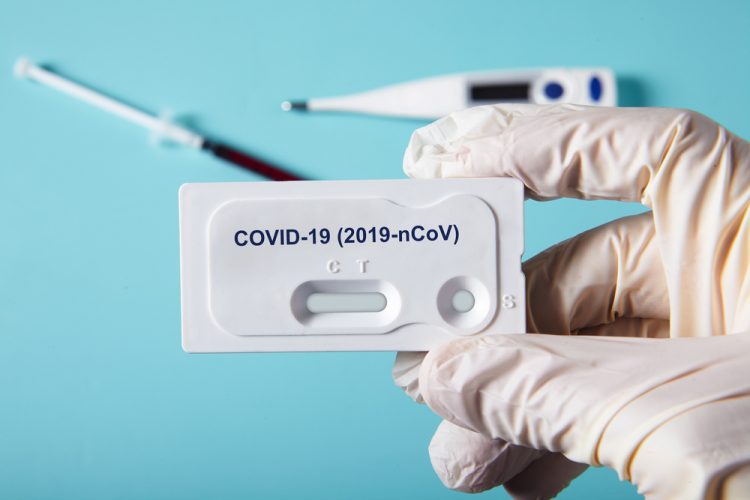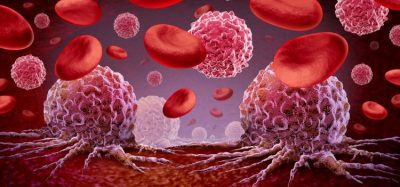‘At home’ COVID-19 antibody tests: expert opinions and manufacturer warnings
Posted: 26 May 2020 | Hannah Balfour (European Pharmaceutical Review) | No comments yet
Abbott has revealed its SARS-CoV-2 antibody test was not designed for at home use despite companies selling them for this purpose. Also, what do experts think about these tests?


The manufacturer of the ‘ARCHITECT’ SARS-CoV-2 antibody test, Abbott, has come forward to say it was not designed for at home use and there is no data to confirm that blood from a finger prick is a suitable sample for the test.
Experts have also warned that consumers need to be informed that Public Health England (PHE) has validated very few of the tests’ specificity and selectivity claims and what these criteria mean for public health.
Abbott said the ARCHITECT antibody test, which has been sold at Superdrug and other suppliers as an at home testing kit, “was developed for use by laboratory professionals only”, “is not intended for use as a home test and it should not be conducted with a finger stick blood sample” as the company “does not have any data to support that finger-stick blood samples can be used with our test”.
It continues: “The use of the Abbott name, our data and our materials by any companies in connection with these home tests has not been authorised by Abbott, and we regard them as misleading in that these sites imply Abbott condones the use of finger stick samples with our test. This is false and not correct.
“We took immediate action upon learning of this and have taken steps to have companies remove our name from their website and retract any misleading information relating to our test.” Although, the specific companies have not been revealed, Superdrug no longer has the test listed on its website.
Other COVID-19 ‘at home’ tests
Two companies, Babylon and Superdrug, have been selling at home SARS-CoV-2 antibody testing kits, theoretically designed to indicate if someone has had an immune response to COVID-19; however, experts have raised concerns about these tests.
Professor Matthew Baylis, Chair of Veterinary Epidemiology at the University of Liverpool, said: “The two antibody tests that have become available to purchase both offer high levels of accuracy, but it is essential that the general public understand what this accuracy means for them, as potential purchasers of the tests. The Babylon test confirms that a person is positive for antibody to COVID-19 (the sensitivity) with 98.5 percent accuracy; and it confirms a person is negative for antibody to COVID-19 (the specificity) with 99.5 percent accuracy. These sound impressive but they are not 100 percent, implying a small percentage of people will get the wrong result.
…these tests simply assess the presence or absence of this antibody. We do not yet know if this antibody actually confers immunity”
“How important is this small percentage? Ironically, it depends on how many people already have antibodies (the prevalence), which we will not know until antibody tests have been widely deployed. In its own test assessments, Public Health England has assumed one in 10 of us already has antibody. If this is the case, then of 1000 purchasers who get negative results – indicating no antibody – using the Babylon test, only one or two of them is expected to be actually positive (has antibody). This margin of error is good. More concerning is that of a thousand purchasers who get positive results – indicating the presence of antibody – using the Babylon test, over forty of them, approximately 4.4 percent, are expected to be negative. These individuals may believe they are immune and change their behaviour, while in fact they are not immune.
“If PHE’s estimate of prevalence is too high, then this error rate becomes more significant. If the prevalence of antibody is only five percent, then nine percent of positive test results are expected to be from people who are actually negative for antibody.
“At the individual level, these numbers mean that if the prevalence of antibody is 10 percent, then a positive test result has a one in 20 to 25 probability of being incorrect. If the prevalence is five percent, then this probability is nearer one in ten.
“The Superdrug test offers a lower sensitivity but a higher specificity than the Babylon test. The 100 percent specificity implies there are no false positives; and therefore, all positive test results are ‘true’. A positive test result using the Superdrug test apparently provides certainty that the individual has developed antibody to the virus that causes COVID-19 and has therefore had the disease already.
“Importantly, these tests simply assess the presence or absence of this antibody. We do not yet know if this antibody actually confers immunity, or if there is immunity, whether it will rapidly fade and leave people susceptible to COVID-19 a second time.”
Dr Colin Butter, Associate Professor and Programme Leader in Bioveterinary Science at the University of Lincoln, added: “The test kits being advertised are not ‘at home’ pregnancy test-style devices that give an instant result: none of these have passed the specificity and sensitivity requirements laid down by Public Health England. Rather, users must take a small blood sample, by the pin prick method familiar to many diabetics, which is then sent to a laboratory for analysis. At least one of the tests on offer has recently been validated by PHE.
“These tests should give a good indication of whether an individual has been infected with COVID-19 and now has serum antibody against it. Whilst this may be an indication of functional immunity, confirmation of this is awaited from large scale studies presently underway. Until it is, individuals should not assume they are fully immune to further infection.
“The tests come at a cost that is reasonable given the processing involved, though will deter many. It is to be hoped that government-run schemes will allow a high proportion of the UK population to understand if they have been infected and now have antibodies to the virus.”
Related topics
Antibodies, Medical Devices, QA/QC, Regulation & Legislation, Viruses
Related organisations
Abbott, Babylon, Public Health England, Superdrug, University of Lincoln, University of Liverpool









